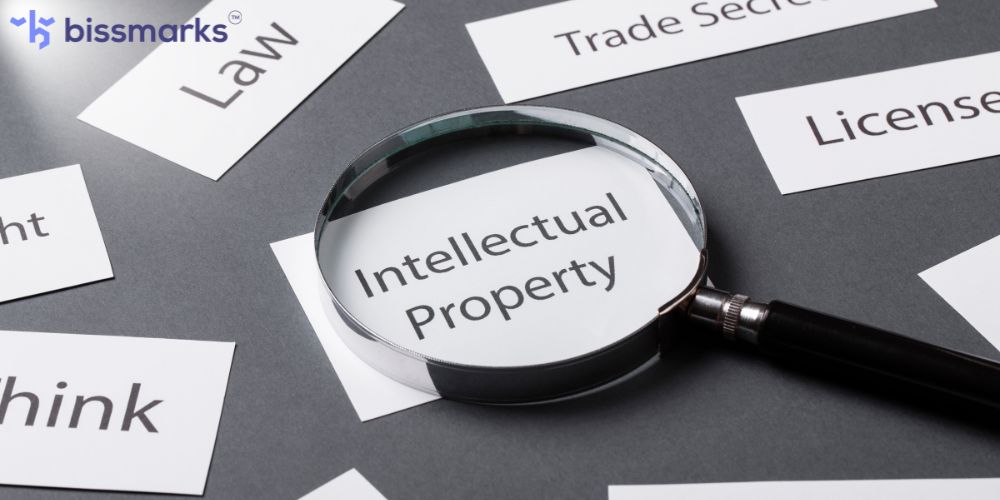The world of business is filled with creative ideas, innovative products, and unique expressions. But how do you protect these valuable assets? This is where intellectual property (IP) comes in. However, with terms like copyright, trademark, and patent floating around, it can be confusing to understand which one applies to your specific creation.
Here at Bissmarks, we want to empower creatives and entrepreneurs with a clear understanding of these key IP concepts: Copyright, Trademark, and Patent.
Copyright: Protecting Original Works of Authorship
Imagine you’ve poured your heart and soul into writing a beautiful song, designing a captivating logo, or crafting a compelling blog post. Copyright protects these original works of authorship, ensuring you receive credit and control over how your creation is used.
1. What Does Copyright Protect?
Copyright covers a wide range of creative expressions, including:
- Literary works (books, articles, poems)
- Musical compositions
- Artistic works (paintings, sculptures, photographs)
- Computer software
- Architectural designs
2. What Copyright Doesn’t Protect?
It’s important to understand what copyright doesn’t protect. Ideas, facts, and common phrases are not copyrightable. Copyright also doesn’t protect the physical object itself, but rather the creative expression embodied in it.
3. Copyright Benefits:
Copyright grants you the exclusive right to:
- Reproduce your work
- Create derivative works (adaptations)
- Distribute copies of your work
- Display your work publicly
- Perform your work publicly (for literary, musical, or dramatic works)
Trademark: Protecting Your Brand Identity
Your brand is your reputation. It’s the symbol that represents your business and sets you apart from competitors. A trademark protects these identifying symbols, ensuring others don’t use confusingly similar marks that could mislead consumers.
1. What Can Be Trademarked?
Trademarks can encompass a variety of elements that identify your brand, such as:
- Words (brand names, slogans)
- Logos
- Symbols
- Sounds (e.g., jingles)
- Product packaging
2. What Trademarks Don’t Protect?
Trademarks don’t protect generic terms, descriptive phrases, or common symbols. For example, you can’t trademark the word “chair” or a generic symbol like a heart.
3. Trademark Benefits:
A registered trademark provides you with:
- Legal protection against infringement (unauthorized use)
- Exclusive right to use the trademark for your specific goods or services
- A public record of ownership
Also, Read: Trademark Office Action: A Simple Guide for Bissmarks Customers
Patent: Protecting New Inventions and Processes
Do you have a groundbreaking invention or a unique process that solves a problem in a new way? A patent protects these inventions and processes, granting you exclusive rights to prevent others from making, using, selling, or importing your invention for a limited period.
1. What Can Be Patented?
Patents can cover a wide range of inventions, including:
- New machines or improvements to existing ones
- Chemical compositions and processes
- New uses for existing things
- Ornamental designs for products
2. What Patents Don’t Protect?
Patents don’t protect abstract ideas, scientific discoveries, or natural laws. They also typically don’t protect business methods or software as a whole (though some software components might be patentable).
3. Patent Benefits:
A patent grants you:
- Exclusive rights to your invention for a limited period (typically 20 years)
- The ability to license or sell your invention to others
- A competitive advantage in the marketplace
Also, Read: Top 5 Reasons Why You Need A Lawyer To File A Trademark
Which One Do You Need?
The type of IP protection you need depends on your specific creation:
- For original works of authorship: Copyright protects your creative expression (writing, music, artwork, etc.)
- For brand identity: Trademark protects your brand symbols (logos, slogans, etc.)
- For new inventions and processes: Patent protects your functional inventions or unique processes
Remember: An invention can sometimes be protected by both a patent (for its functionality) and a trademark (for its brand identity).
Seeking Professional Help: Trademark Attorney USA Understanding IP law can be complex. If you have questions about protecting your creative work, brand, or invention, consider consulting with a Trademark Attorney. They can provide personalized advice and guidance tailored to your specific situation.




